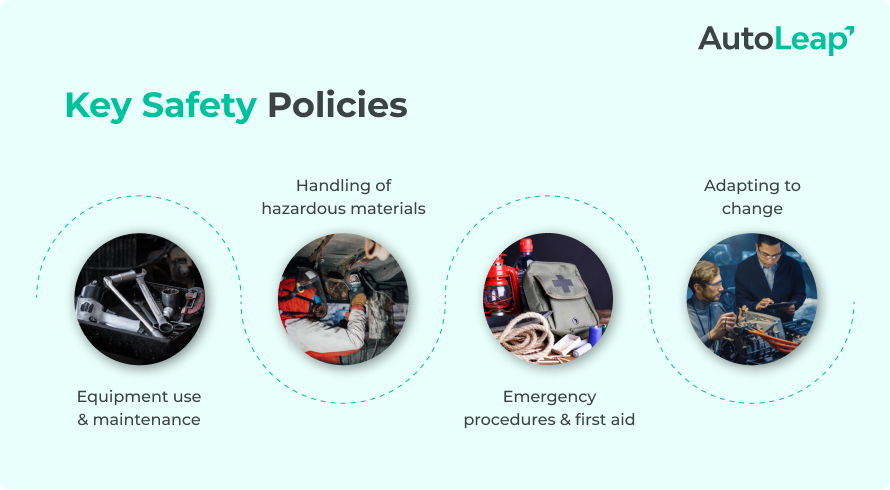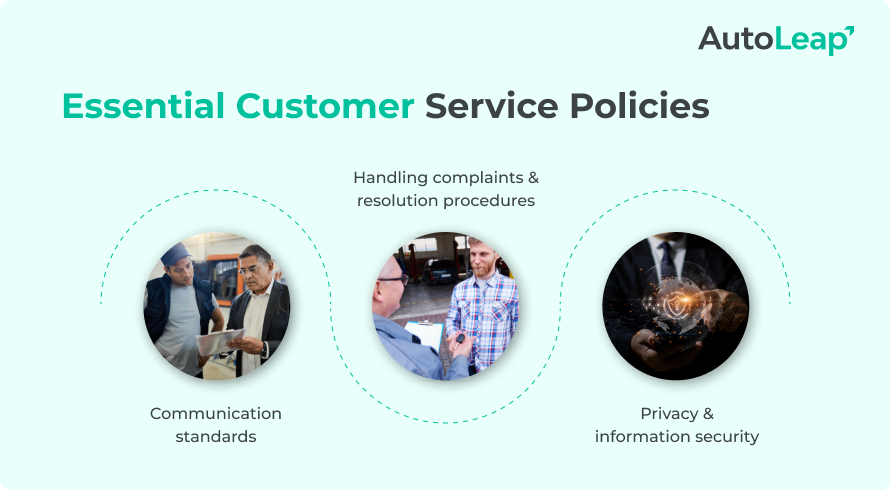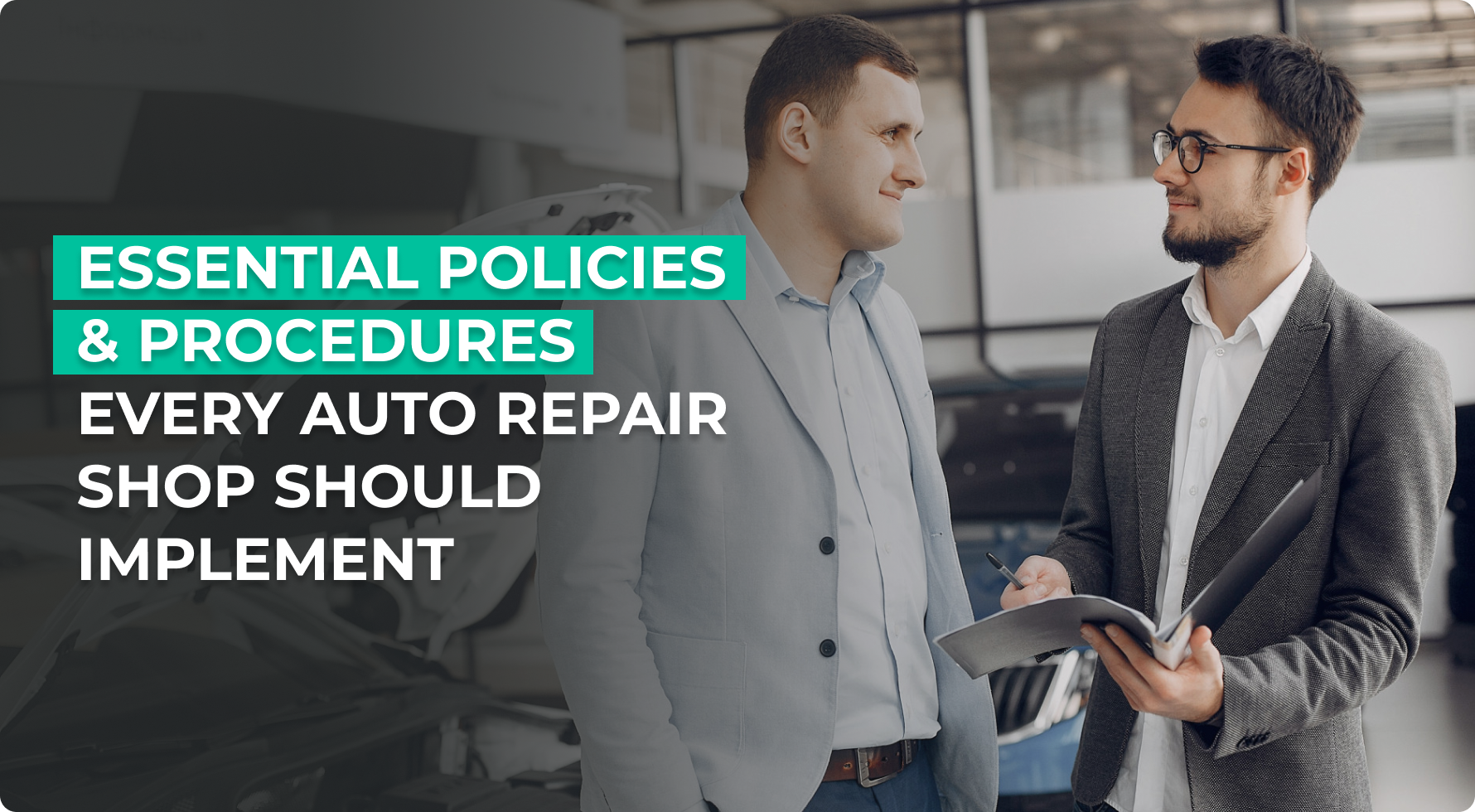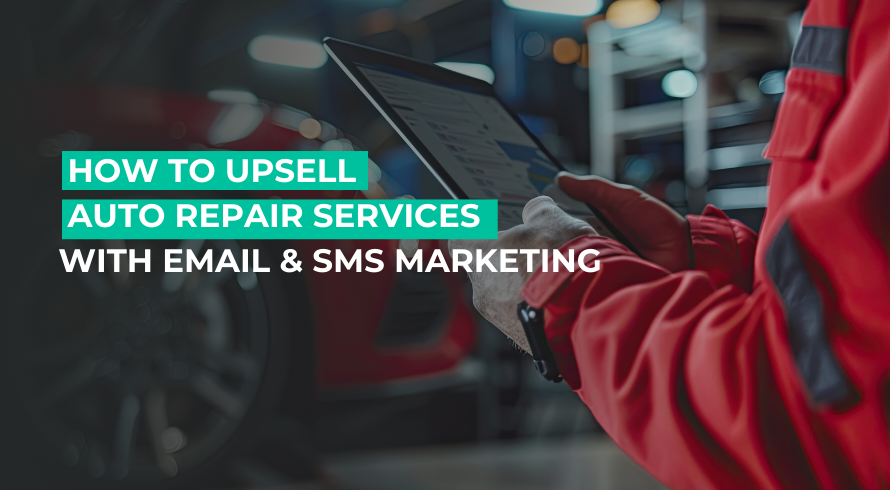Have you ever wondered what separates a top-notch auto repair shop from the rest? It’s often the behind-the-scenes policies and procedures that make all the difference. You can improve your operation by setting clear guidelines.
Let’s look at the essential policies and procedures for your auto repair shop to make it better.
Schedule a free demo today!

Boost your shop sales

Simplify shop management

Empower your technicians
Safety protocols to follow
Purpose of safety protocols
Safety protocols are essential to protect both employees and customers, ensuring a safe working environment and enhancing your shop’s reputation. A commitment to safety demonstrates professionalism and care, which builds trust and confidence in your services.
Key safety policies

- Equipment use and maintenance
Every piece of equipment in your shop should be regularly inspected and maintained. This isn’t just about avoiding costly breakdowns but also about preventing accidents. For instance, a hydraulic lift that isn’t properly maintained could fail and cause serious injuries. Make sure there’s a schedule for regular checks. Also, make sure that all the issues are addressed immediately.
- Handling of hazardous materials
Auto repair shops deal with many hazardous materials, from motor oil to battery acid. Implement strict guidelines for the storage, handling, and disposal of these materials. For example, have clear labeling for all hazardous substances and ensure they are stored in designated areas away from customer-accessible spaces. Training employees to handle spills and dispose of waste properly is crucial.
- Emergency procedures and first aid
Accidents happen, even in the best-regulated environments. So it’s crucial to have clear emergency procedures and conduct regular drills for fires, chemical spills, or serious injuries. Ensure all employees have basic first aid training and equip your shop with accessible first aid kits. Mandatory safety training sessions should cover new and existing protocols and review any incidents to improve future responses. Regular audits and surprise inspections help monitor compliance, fostering a culture where safety is everyone’s responsibility.
Customer service guidelines
Customer service is the lifeblood of your auto repair shop. Good policies ensure that customers feel valued and heard. This is essential for repeat business and positive word-of-mouth referrals.
Purpose of customer service policies
Customer service policies are designed to maintain high standards of service. They also enhance customer satisfaction. They provide a consistent framework for how employees should interact with customers to help ensure a seamless and positive experience.
Essential customer service policies

- Communication standards
Effective communication is critical to customer satisfaction. Set clear guidelines for how and when to update customers on their vehicle’s status. If a repair takes longer than expected, let the customer know immediately and explain why. Keep your customers updated so they know their vehicle is being taken care of.
- Handling complaints and resolution procedures
No matter how good your service is, there will always be complaints. What sets great shops apart is how they handle these complaints. Develop a straightforward process for addressing issues quickly and fairly. Train employees to listen empathetically, apologize sincerely, and offer solutions that meet the customer’s needs. Use customer satisfaction surveys and feedback forms. Review this feedback regularly and make necessary improvements to maintain high service standards.
- Privacy and information security
Protecting customer data is very important in today’s digital age. Implement robust policies to safeguard personal information. This includes securing both physical records and digital data. Ensure that only authorized personnel have access. Train employees on data protection practices.
Payment policies
Transparent and fair payment policies are essential for smooth operations and financial stability. They help avoid misunderstandings and disputes. And ensure a positive experience for both your shop and your customers.
Purpose of payment policies
Payment policies clarify the financial aspects of your services and make transactions smoother and more transparent. They also help prevent disputes and ensure customers understand their obligations.
Key aspects of payment policies

- Transparent pricing and estimates
Providing customers with precise, upfront estimates builds trust. Explain any potential additional costs so there are no surprises. For instance, if you find extra issues during a repair. Then, contact the customer immediately to discuss the new estimate before proceeding.
- Accepted payment methods
List all accepted payment methods. Whether it’s cash, credit cards, or financing options. This avoids confusion at the time of payment and ensures customers are prepared.
- Deposits and payment plans
Outline any deposit requirements and available payment plans. This is particularly useful for expensive repairs. It allows customers to manage their finances better while getting the service they need.
- Handling overdue payments
Establish a fair and transparent process for dealing with overdue payments. This might include setting clear terms for late fees, and offering options for customers to settle their accounts. Explain payment terms clearly before starting any service. This is best done through written agreements or by prominently displayed signs in your shop. Regularly review and update your payment policies to keep them fair and competitive.
Closing thoughts
Implementing these essential policies and procedures can help you create a safer, more efficient, and customer-friendly environment at your auto repair shop. This improves your shop’s operations. It also helps build trust and loyalty with your customers. A well-run shop is a successful shop, and with these guidelines, you’re well on your way to achieving that success.
FAQs
What precautions should be observed in an automotive workshop?
How do I organize my auto repair shop?
Use clear layouts, and labels, clean regularly, and establish maintenance routines.



 Demo
Demo







